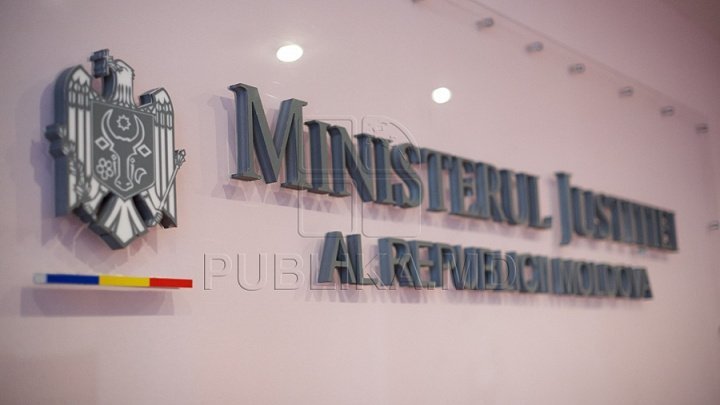Report of Ministry of Justice for 2018. What success he has achieved
 foto: publika.md
foto: publika.md
Justice and human rights constituted the Ministry of Justice's priority in 2018, its work being focused on policy-making on these large segments and with a major impact on other sectors. Relevant aspects of the work of the Ministry of Justice and important achievements were noted in the annual report, published on the official website of the institution.
In 2018, the projects established as priorities in the "Little Reform of Justice" were developed and promoted. Thus, Parliament has passed a package of laws that will help improve the efficiency and independence of the judiciary, strengthen the role of the Superior Council of Magistracy, promote a merit-based system in the selection and promotion of judges, and improve the mechanism of accountability of judges for the quality of the act of justice.
At the same time, the Ministry of Justice has contributed to its field of competence and to the priorities of other policy documents, including the Government's work program, priorities aimed at enhancing the efficiency and independence of the judiciary, improving justice, strengthening integrity in public institutions, ensuring respect for human rights.
The success of legislative achievements in 2018 has materialized also through the adoption by Parliament of the Civil Code modernization project , the first full review since its adoption in 2003, and is the result of a consistent effort of more than 4 years with the involvement of a significant number of experts, practitioners and academics. With the new amendments, the Republic of Moldova's private law was brought in line with the latest international trends in the field.
Also , a series of amendments were made to the civil-law process in the sense of its simplification, namely by introducing urgent procedures for solving certain categories of cases, excluding the possibilities of delaying the civil process and optimizing the length of the examination of the civil cases, as well as simplifying procedural documents and motivating the use of information systems by participants in the process.
An important document promoted and adopted by Parliament in 2018 is the Third National Action Plan on Human Rights (PNADO). It is a comprehensive policy paper covering 16 broad areas of intervention, covering most of the whole range of human rights, starting with justice, freedom of expression, education, health, etc. and finalizing with respect for human rights in the localities on the left bank of the Dniester. Due to the fact that the increase of the level of protection of human rights is an imperative, the adoption of this document reaffirms Moldova's commitments in this respect.
Also, during 2018 the Ministry of Justice initiated the development of organizational and logistical actions for the re-planning or gradual construction of the courts, necessary for the reform of the court map.
The new headquarters of the Ungheni Court were put into operation, merged with the headquarters of the former Nisporeni Court, and measures were taken to identify the land for the construction of the new buildings of the Orhei, Edinet, Hincesti, Causeni, Cahul, Balti, Soroca, Drochia, Comrat, Criuleni, Anenii Noi, Cimislia, Straseni.
At the same time, all the legal procedures were initiated in order to ensure the transfer of identified land from the public property of the local public administration to the public property of the state (Ministry of Justice management).